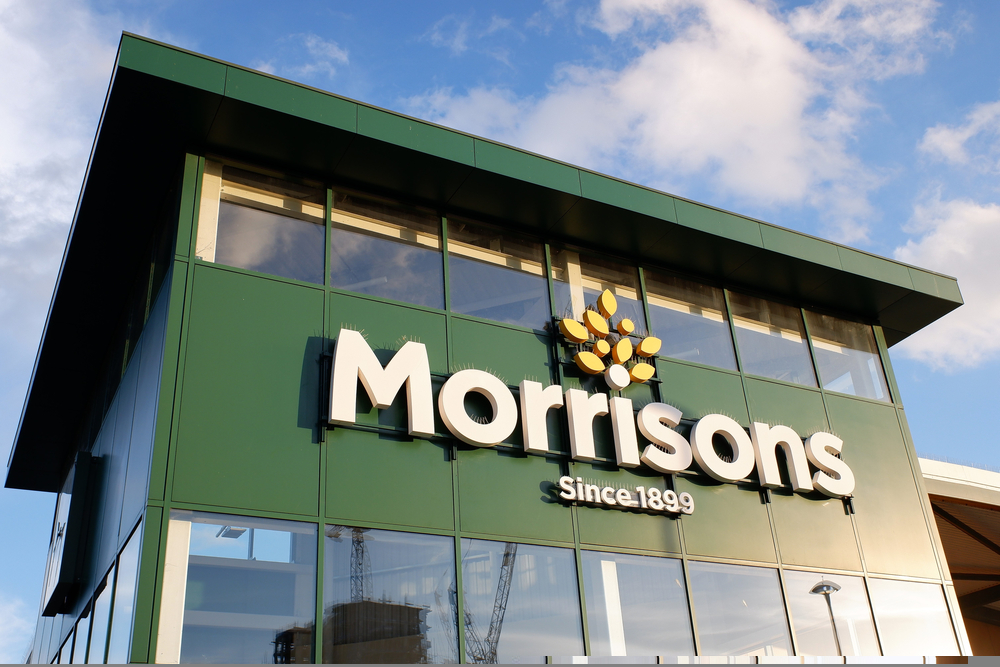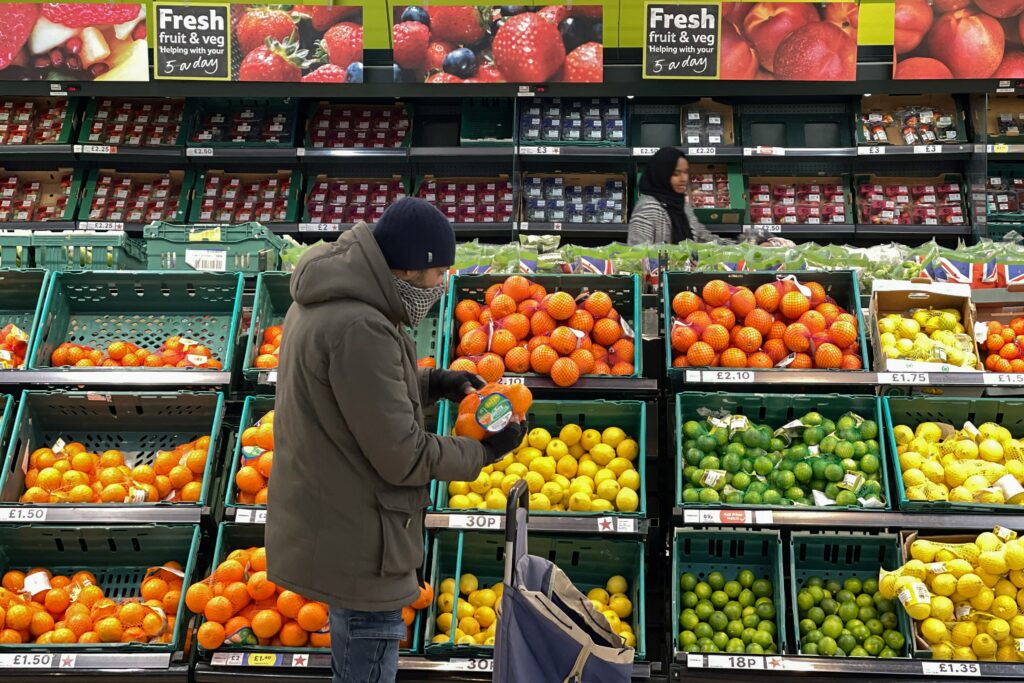
In the dynamic world of retail, Morrison Supermarkets reviews stands out as a resilient and innovative player. Founded over a century ago, Morrison has grown from a single market stall to one of the UK’s largest supermarket chains.
Today, it competes in a fiercely competitive market, adapting to changing consumer preferences and technological advancements. This article delves into the journey of Morrison Supermarkets, examining its strategies, challenges, and prospects in the modern retail landscape.
What’s in this article?
- 0.1 Historical Background
- 0.2 What Are Morrison Supermarkets?
- 0.3 How Have Morrison’s Innovations And Adaptations Shaped Its Market Presence?
- 0.4 What Challenges Does Morrison Face In The Highly Competitive Supermarket Sector?
- 0.5 Product Range and Services
- 0.6 Technological Advancements and Online Presence
- 0.7 Financial Performance
- 0.8 Challenges and Opportunities
- 0.9 Corporate Responsibility and Community Engagement
- 0.10 What does the future hold for Morrison Supermarkets?
- 0.11 FAQs: Morrison Supermarkets Reviews
- 1 Conclusion
Historical Background
William Morrison established Morrison Supermarkets in 1899, starting with a simple egg and butter stall in Bradford, England. Over the decades, Morrison’s commitment to quality and customer service fueled its growth.
The post-war era saw rapid expansion, with Morrison pioneering self-service supermarkets in the UK. Key milestones included its first store in Bradford in 1958, and the transformative acquisition of Safeway in 2004, significantly increasing its presence and scale.
What Are Morrison Supermarkets?
Morrison Supermarkets, part of Wm Morrison Supermarkets plc, is one of the UK’s largest grocery chains. Founded in 1899 by William Morrison, it began as a humble market stall and has since grown into a nationwide entity with over 500 stores.
Morrison is known for its focus on quality fresh produce, extensive product range, and commitment to customer satisfaction. Distinctive for its in-store services like butcheries, bakeries, and fishmongers, Morrison brings a traditional market feel to the modern retail experience.
Catering to a broad demographic, Morrison combines the convenience of a supermarket with the quality typically associated with local specialty stores.
How Have Morrison’s Innovations And Adaptations Shaped Its Market Presence?
Morrison Supermarkets’ innovations and adaptations have been key in shaping its market presence, especially in a rapidly evolving retail landscape. At the same time, the company faces a range of challenges in the highly competitive supermarket sector. Let’s explore both aspects:
1. Digital and Online Expansion: Morrison has significantly improved its online presence, including a partnership with Amazon for grocery delivery, which has expanded its reach and convenience. Their online shopping platform and delivery services have been crucial, especially during the COVID-19 pandemic.
2. Product Range Expansion: Morrison has continually expanded and diversified its product range, including the introduction of more private-label products, organic options, and specialty foods. This diversification helps cater to a wider array of consumer preferences.
3. Store Experience Enhancements: Morrison has focused on enhancing in-store experiences, such as by introducing in-store bakeries, butcher counters, and fishmongers, emphasizing the freshness and quality of their products. This approach differentiates them from some competitors.
4. Sustainability Initiatives: The supermarket has launched various sustainability initiatives, like reducing plastic waste and carbon emissions, which not only help the environment but also appeal to environmentally conscious consumers.
5. Vertical Integration: Morrison’s unique approach to owning much of its supply chain, including manufacturing and processing facilities, provides greater control over product quality and costs, setting it apart from many competitors.
6. Community Engagement: The company has made efforts to engage with communities, such as through charitable initiatives and local sourcing, enhancing its brand image and customer loyalty.
What Challenges Does Morrison Face In The Highly Competitive Supermarket Sector?

1. Intense Competition: Morrison faces stiff competition from other major supermarkets like Tesco, Sainsbury’s, and Asda, as well as discount retailers like Aldi and Lidl. This competition puts pressure on pricing, product range, and market share.
2. Changing Consumer Preferences: Keeping up with rapidly changing consumer preferences, such as the demand for online shopping, convenience foods, and ethical products, is a constant challenge.
3. Economic Pressures: Economic factors like inflation, fluctuating exchange rates, and changes in consumer spending power directly impact Morrison’s profitability. Post-Brexit trade scenarios also present uncertainties.
4. Technological Advancements: Staying abreast of technological advancements and integrating them into the business, from supply chain management to customer service, is crucial but challenging.
5. Supply Chain Management: Despite the advantage of vertical integration, global supply chain disruptions can still impact product availability and costs.
6. Regulatory Compliance: Adhering to evolving regulations, especially in areas like food safety, employee welfare, and environmental standards, requires continuous vigilance and adaptation.
Product Range and Services
Morrison’s product range is vast, catering to diverse customer needs. Its emphasis on fresh, quality produce is evident in its in-store offerings, including butcher, bakery, and fishmonger services.
These services not only differentiate Morrison from other supermarkets but also add a personal touch to the shopping experience, harking back to its market stall roots.
Technological Advancements and Online Presence
Embracing the digital era, Morrison has significantly expanded its online presence. The supermarket has invested in its e-commerce platform, adapting to consumer trends towards online shopping, accelerated by the COVID-19 pandemic.
Partnerships with technology companies have further enhanced its online delivery capabilities, meeting the growing demand for convenience.
Financial Performance
Morrison’s financial performance reflects its adaptability and strategic decisions. While the retail sector faces challenges, Morrison has shown resilience.
Its market share and stock performance, though fluctuating, have remained strong indicators of its stable position in the market. Recent financial reports highlight its sustained revenue and growth, despite economic pressures.
Challenges and Opportunities
The retail landscape presents various challenges for Morrison, including intense competition, changing consumer habits, and economic uncertainties. However, opportunities abound.
Expanding its digital footprint, exploring new market segments, and enhancing sustainability practices could propel Morrison forward. The rise of ethical consumerism also presents a chance for Morrison to lead in corporate responsibility.
Corporate Responsibility and Community Engagement
Morrison’s commitment to sustainability and community engagement is evident in its various initiatives. From reducing plastic waste to supporting local communities through charity work, Morrison has taken steps to align its operations with broader social and environmental goals. These efforts not only reflect corporate responsibility but also resonate with increasingly conscious consumers.
What does the future hold for Morrison Supermarkets?
The future of Morrison Supermarkets, like any major retail chain, depends on several factors including market trends, consumer behavior, technological advancements, and competitive dynamics. Here are some potential areas that could shape Morrison’s future:
Digital Transformation and Online Retail:
The future of retail is increasingly digital. Morrison’s ability to adapt to and capitalize on online shopping, mobile apps, and digital marketing will be crucial. Enhancing their online delivery services and integrating advanced technologies like AI for personalized shopping experiences could be key.
Consumer Preferences and Trends:
Keeping pace with changing consumer preferences, such as increased demand for organic, locally sourced, or plant-based products, will be important. Morrison’s ability to cater to these evolving needs, possibly expanding its range of specialty products, will be a significant factor.
Sustainability and Ethical Practices:
Consumers are becoming more environmentally conscious and socially aware. Morrison’s efforts in sustainability, reducing carbon footprints, ethical sourcing, and waste reduction will not only impact its corporate responsibility but also its appeal to a growing segment of the market.
Competitive Landscape:
The UK supermarket sector is highly competitive. Morrison’s future will depend on how it positions itself against rivals like Tesco, and Sainsbury’s, and discounters like Aldi and Lidl. This includes pricing strategies, store experiences, and loyalty programs.
Economic and Political Factors:
Economic conditions, including inflation, consumer spending power, and any post-Brexit trade implications, will influence Morrison’s performance. Adapting to these economic conditions and any regulatory changes will be crucial.
Innovation in Products and Services:
Continuously innovating in product offerings, including the expansion of private label brands, and enhancing in-store experiences could be a growth area. Morrison might also explore new store formats or service models.
Supply Chain Management:
Efficient and resilient supply chain management is vital. Morrison could leverage its vertical integration but also might need to adapt to global supply chain challenges, ensuring consistent product availability and cost management.
Also Read: Is Agoda Legit? What You Need to Know Before Booking In a Hotel
FAQs: Morrison Supermarkets Reviews
What is Morrison Supermarkets?
Morrison is a major UK supermarket chain known for its wide range of products, including fresh produce and in-store services.
When was Morrison Supermarkets founded?
William Morrison established Morrison in the year 1899.
What makes Morrison different from other UK supermarkets?
Morrison is known for its emphasis on fresh food, vertical integration in its supply chain, and in-store services like butchers and bakeries.
Does Morrison offer online shopping?
Yes, Morrison provides online shopping and home delivery services.
Where are Morrison stores primarily located?
Morrison stores are mainly located in the north of England, but they have expanded throughout the UK.
Is Morrison involved in community and sustainability efforts?
Yes, Morrison is active in community engagement and has initiatives for sustainability and reducing environmental impact.
Conclusion
Morrison Supermarkets has come a long way from its humble beginnings in Bradford. Through a deep understanding of its customers and a commitment to innovation and quality, Morrison has carved out a significant place in the UK retail sector.
As it faces the future, its journey serves as a testament to the enduring power of adaptation and customer focus in the ever-changing world of retail.
